Everything you need to know about how to get a Philippine National ID in 2026, the complete requirements, application fees and registration of PhilID.
Great news! All Filipino citizens and foreign residents in the Philippines will be required to have a National ID (PhilID). The Philippine Identification System (PhilSys) Act’s primary goal is to establish a single national ID card for all citizens and foreign residents of the Philippines.
The Philippine Statistics Authority (PSA) started the National ID pre-registration process a few years ago. The PSA began collecting information and records for low-income households so that they can have faster digital access to financial assistance and government services.
The PSA targets majority of Filipinos registered for the Philippine National ID system. If you want to prepare for it, here’s everything you need to know about getting a PhilID.
We’re sharing here how to get a National ID in the Philippines, the step-by-step guides, and procedures. You should also take note of the complete requirements in getting a Philippine National ID in 2026.
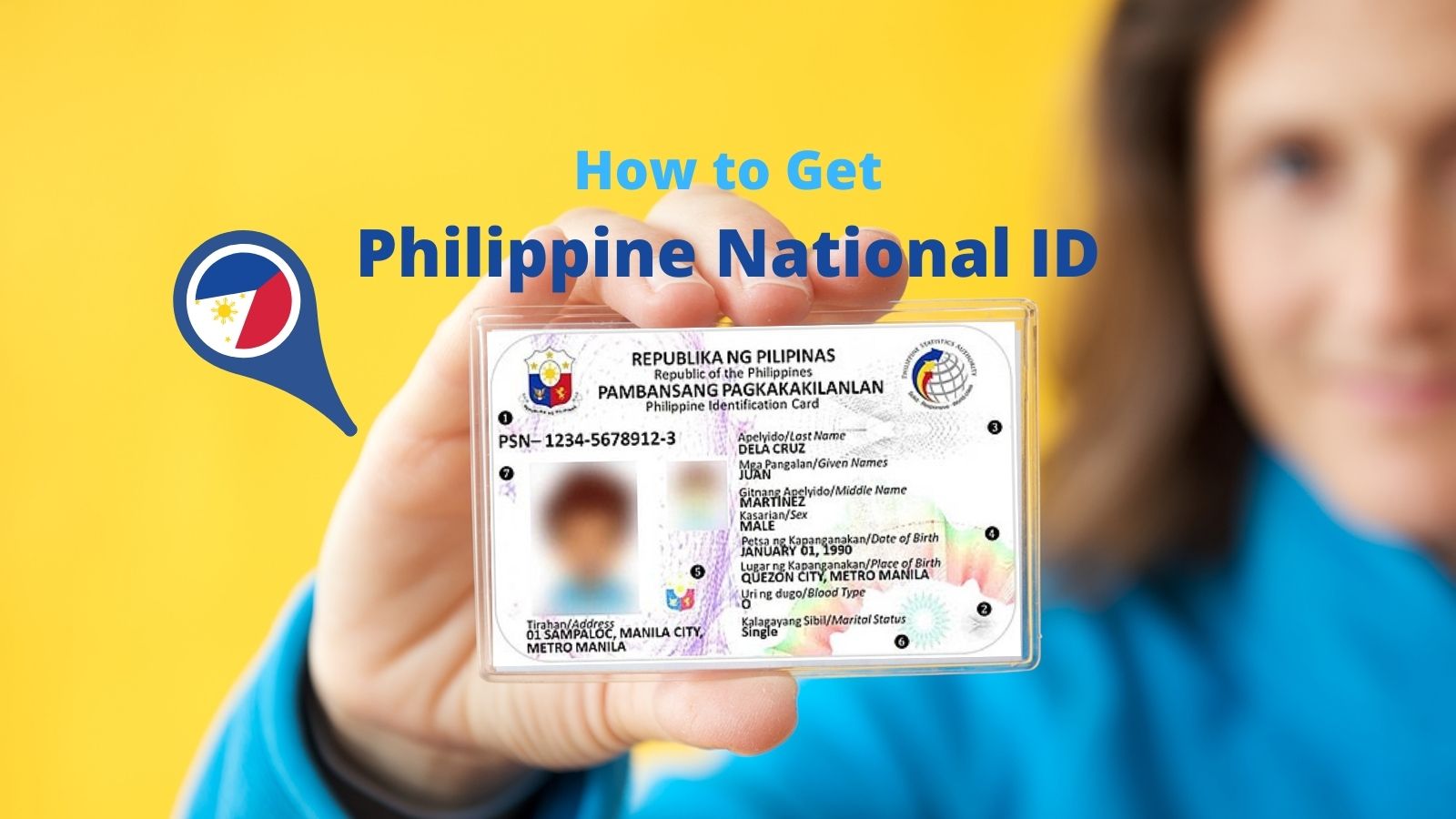
What is Philippine National ID?
Philippine National ID (PhilID) is the official national identification card of Filipino citizens and resident aliens in the Philippines. It serves as a valid proof of identity and authentication when transacting with the government and private sector entities. PhilID is created to promote trust and integrity in the digital economy.
Why Should You Get a PhilID?
Having a PhilID is the easiest and most secure way to access and apply for eligibility for social welfare benefits from the government. It is generally accepted and honored by offices in the Philippines – both government and private companies.
5 Benefits of Philippine National ID Card (PhilID)
1. Uniformity
The National ID of the Philippines project was implemented through the Republic Act 11055, also known as the Philippine Identification System Act. It aims to establish a single national ID system for all Filipinos and residents of the Philippines without needing to present other forms of identification.
PhilID will be one of the most significant valid identification cards in the Philippines. Many countries already have their digitized national ID, and it’s good to know that our country is also adapting to this single identification system soon. Some countries even require national ID info for visa application.
2. Quick Access
Having a PhilID is a privilege. Whatever is your social status, rich or poor, if you have this card, you will have all the benefits attached to it. That includes quick digital access to government financial assistance, social welfare benefits, health support, and other government services as long as you are eligible.
3. Faster Transactions
Identification, authentication, and verification will be faster and seamless because the technology behind the management and production of PhilID is sophisticated. Thus, it will provide cardholders smooth and automated offline and online transactions.
If you are an entrepreneur or an online shopper, having a national ID will also help you get approved faster when you open an online account like Paypal, Payoneer, and other mobile payment platforms.
4. Eliminates Fraud
One of the key components of the Philippine National ID is PSN (PhilSys Number). Every citizen or cardholder will be registered for an exclusive PSN. The PSN will be the ID holder’s main digital footprint as it contains a permanent identification number.
PhilID will also have a QR Code that contains the PSN and two fingerprint information of the cardholder and other advanced security features that will help eliminate fraud.
5. Transparency
Another advantage of having a national ID is to promote transparency, honesty, and trust in the government because all financial aids, health services, social welfare benefits, and other government services delivered to cardholders will be automated through the PhilSys (Philippine Identification System).
It will help eliminate ghost benefits recipients, reduce corruption, and fight crimes.
If you want to apply for a national ID in the Philippines, all applicants are advised to present the required documents listed below.
Philippine National ID Card Requirements:
- Application Form (National ID Registration Form provided by the PSA)
- Present any of the following documents:
- PSA Birth Certificate with one government-issued identification document bearing your full name, photo, signature, or thumb mark
- Philippine Passport (e-passport)
- UMID Card issued by either the Government Service Insurance System (GSIS) or the Social Security System (SSS)
- Valid LTO Driver’s License
- Other equivalent identification documents if requested by the PSA
Married women whose documents reflect her maiden name will be required to present her authenticated PSA Marriage Certificate if she wants to adopt her husband’s surname.
Philippine National ID Requirements for Resident Aliens:
- Application Form for PhilID (provided by the PSA)
- Alien Certificate of Registration (ACR) or ACR ID
How to Get a PhilID (Philippine National ID) – Application Guides (with Pictures)
1. Prepare the documents required for PhilID
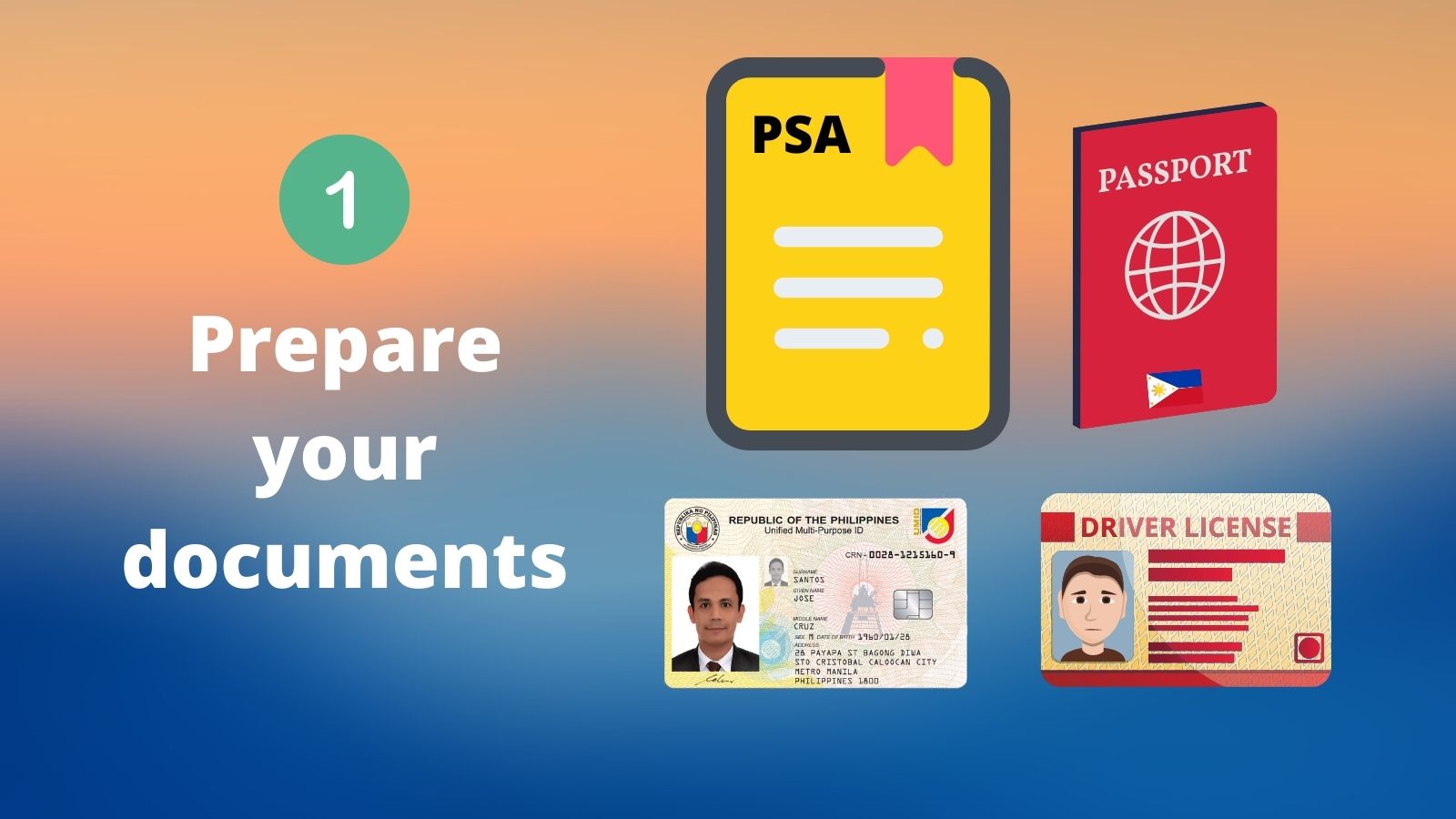
Before going to any PhilID registration center, make sure you have gathered and prepared original copies of any of the documents required. You need to present one of the listed requirements mentioned above.
2. Go to any PhilID Registration Center
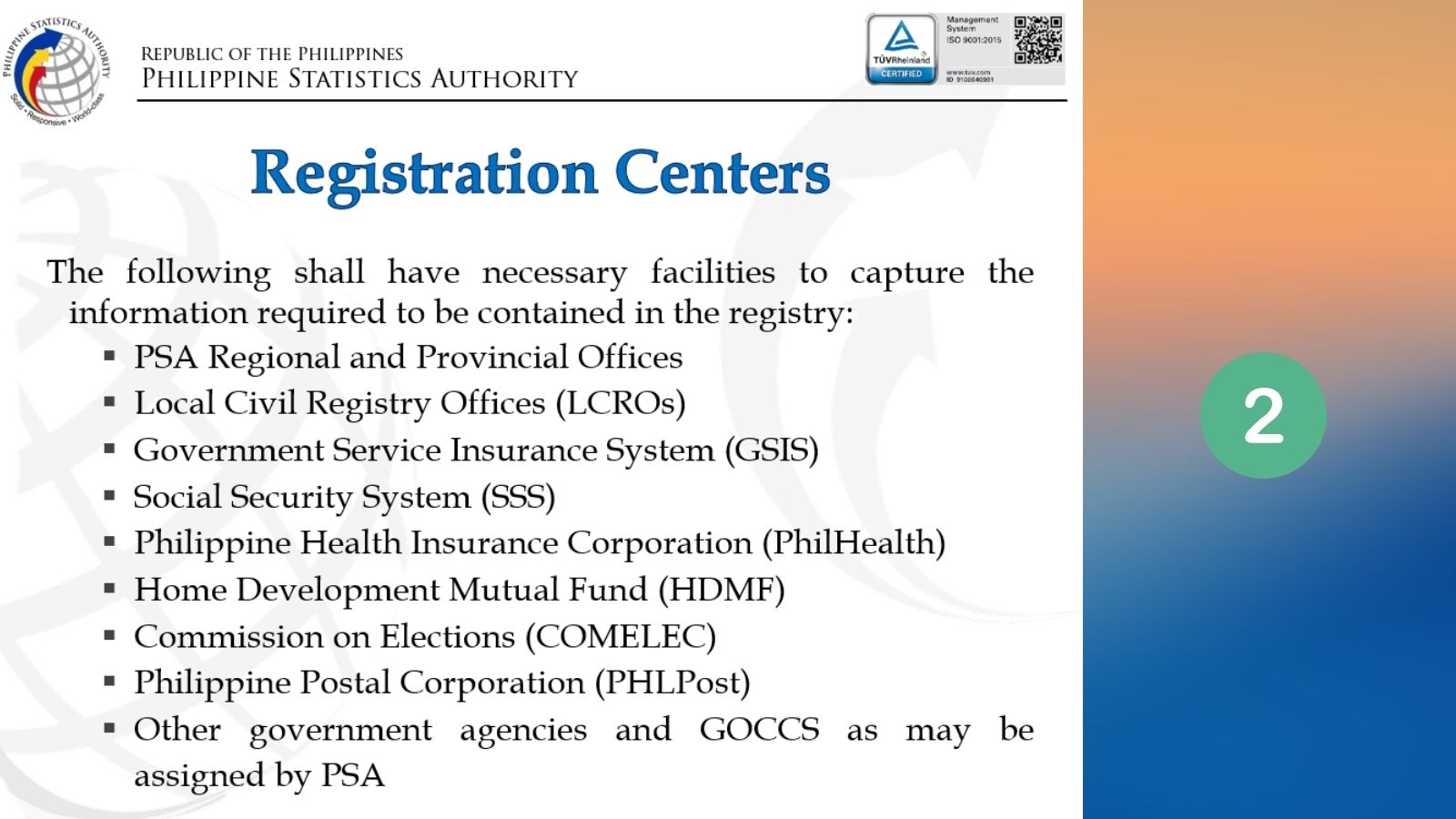
Where to get a Philippine National ID? PhilID applicants need to register in person at any of the following registration centers with the necessary facilities to capture the information required to be stored in the registry.
- PSA Regional and Provincial Offices
- Local Civil Registry Offices (LCROs)
- GSIS (Government Service Insurance System) if you are a member or a dependent
- SSS (Social Security System) if you are a member or a dependent
- Philhealth (Philippine Health Insurance Corporation)
- HDMF (Home Development Mutual Fund)
- COMELEC (Commission on Elections
- PhilPost (Philippine Postal Corporation)
- Other government agencies and GOCCs as may be assigned by the PSA
3. Fill out your Philippine National ID Application Form
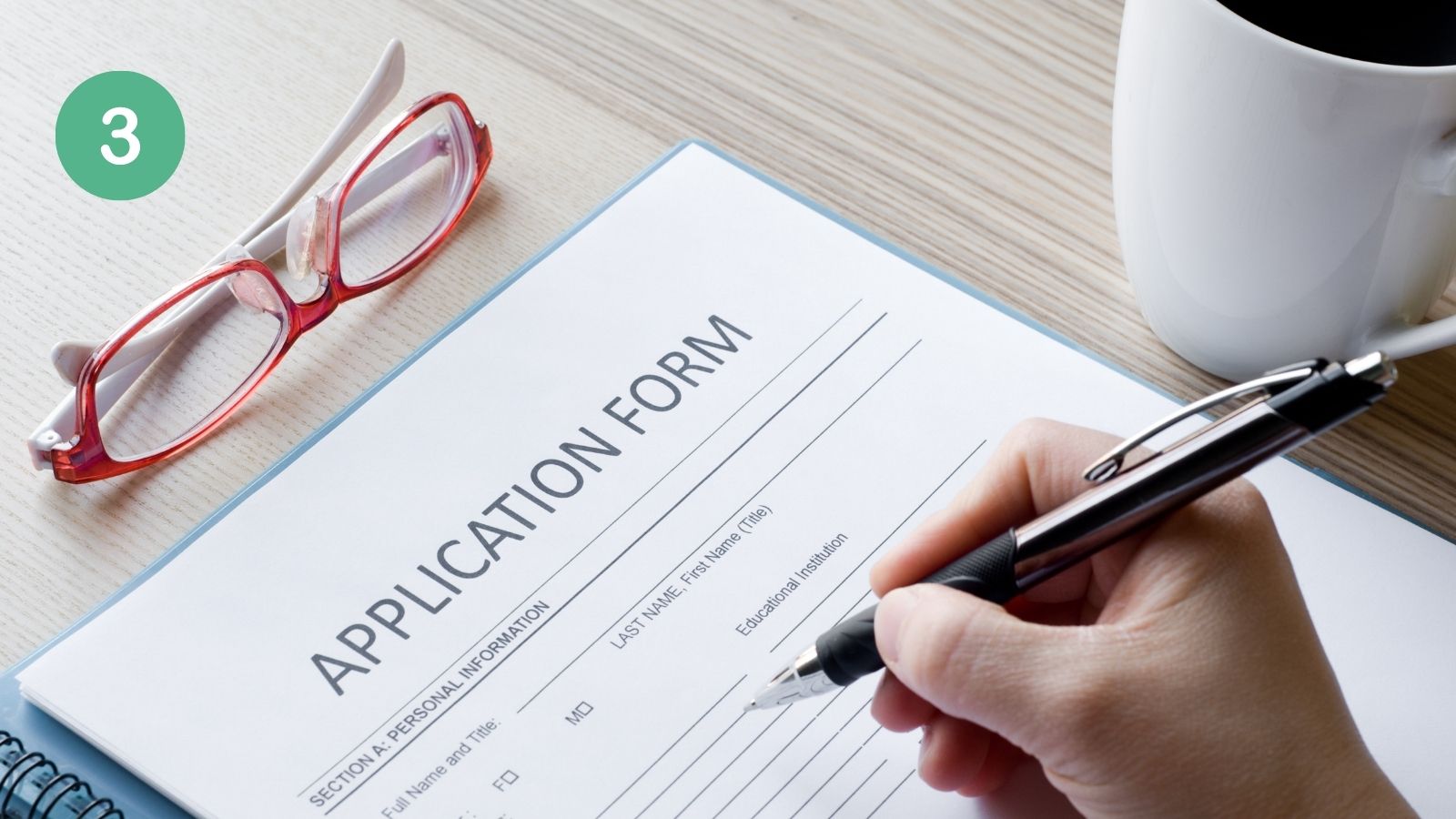
Fill out your application form for PhilID (also called PhilSys Registration Form). The registration center will provide you this form. Ensure that all the entries and information you provide here are consistent with the information on the documents or ID you have presented.
4. Have your biometrics information captured
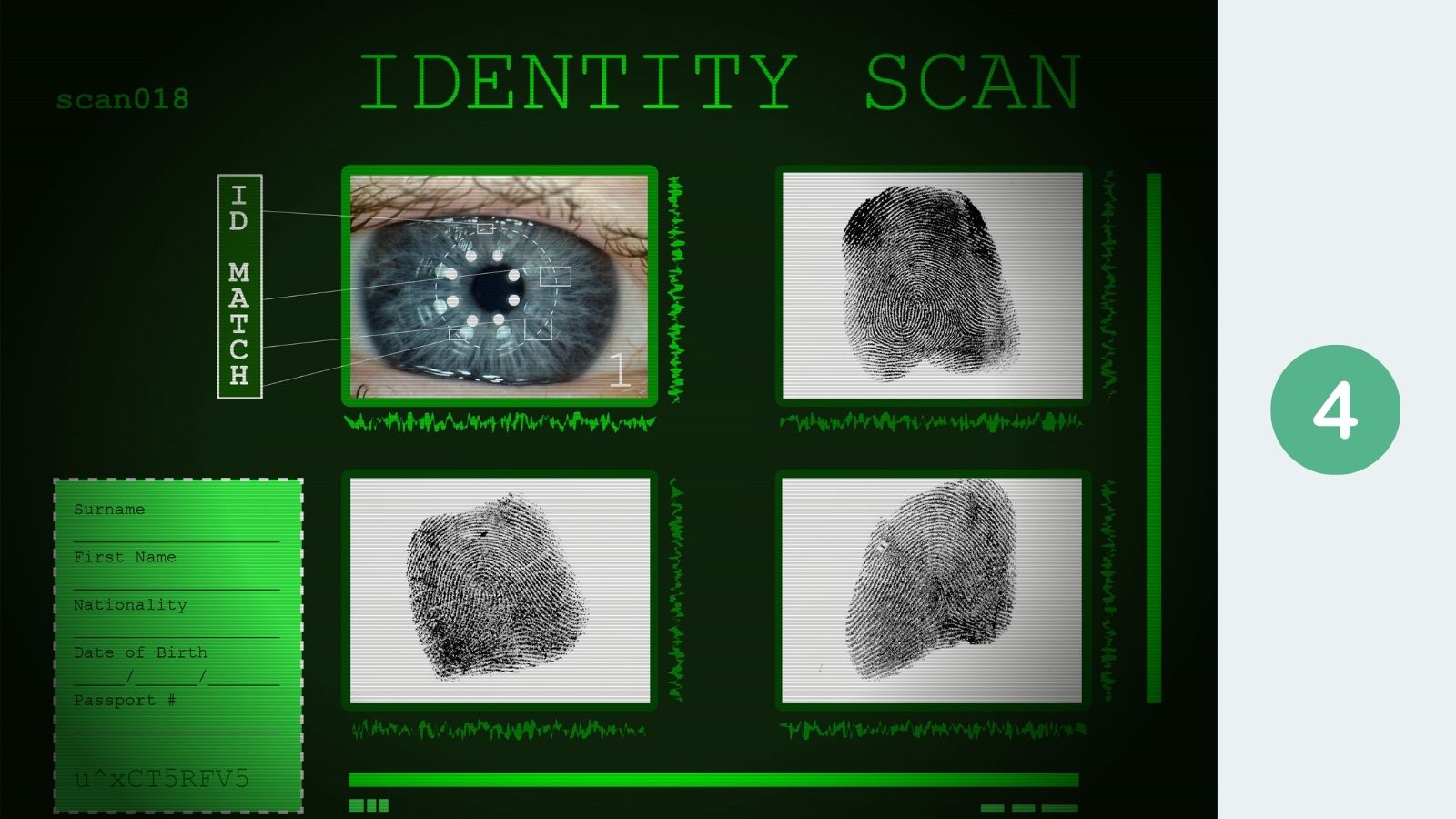
The PSA will check your registration form to see if there is any discrepancy with your documents. Suppose everything is accurate and there is no discrepancy, biometrics data (front-facing photo, fingerprints, and iris scan) shall be captured except for applicants below five years old, in which case, their demographic information and front-facing photo will be sufficient.
5. Generate a PSN (PhilSys Number)

If your biometrics and demographic information are found to be unique, a PSN (PhilSys Number) will be generated for you. Otherwise, the PSA will conduct further verification. If that is the case, you will be notified immediately.
6. Receive your National ID Card
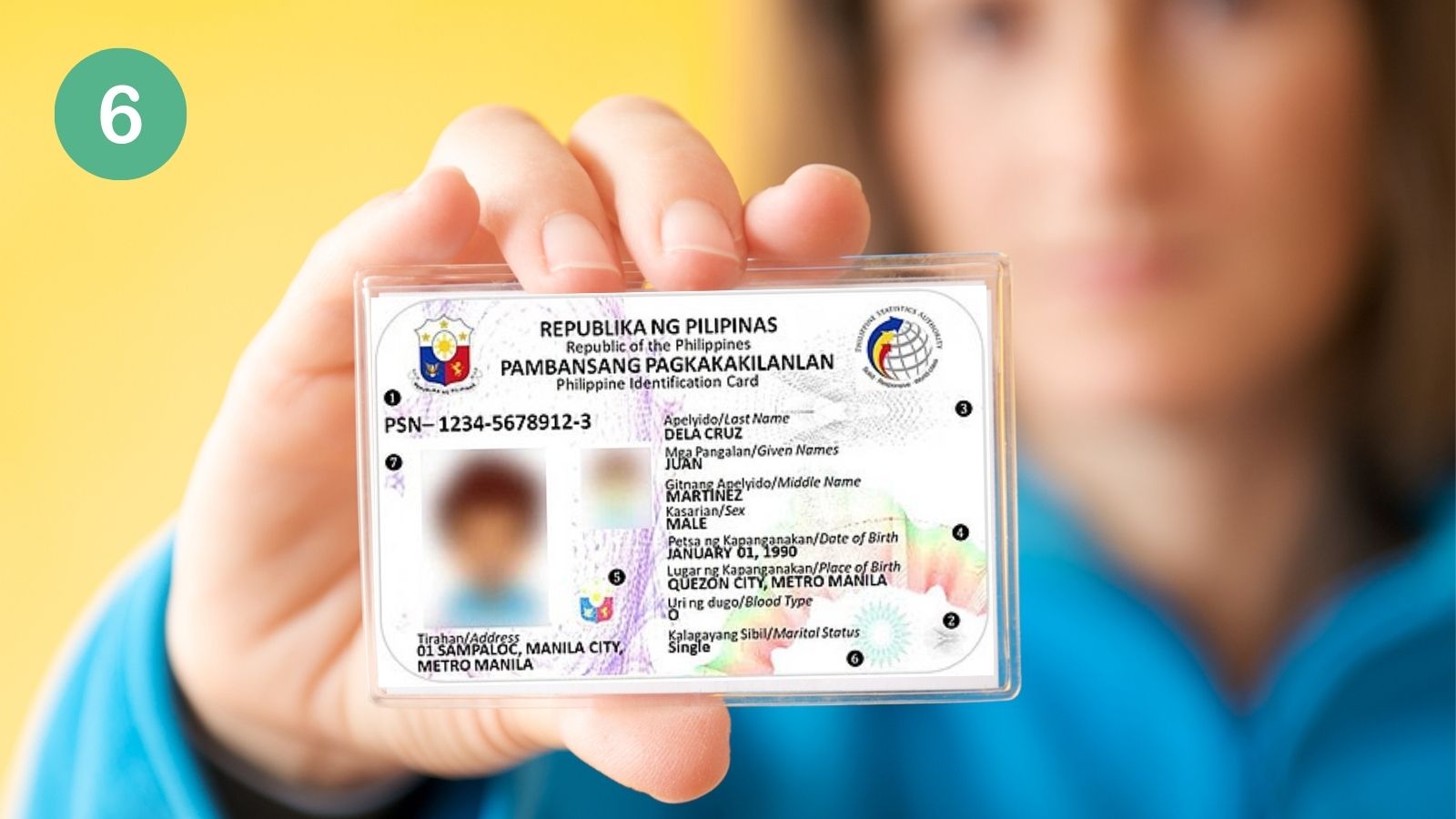
If your PSN (PhilSys Number) was generated and issued through the registry, it means that your application for a PhilID is successful. The PSA will release your PhilID card. You will be notified of how and when you will receive it.
What information does Philippine National ID contain?
According to the Philippine Statistics Authority (PSA) and Philippine Identification System (PhilSys), the following information is collected and stored in the PhilSys registry:
- Demographic Data
- Full name
- Gender
- Date of birth
- Blood type
- Address
- Permanent address
- Present address (optional)
- Citizenship
- Marital status (optional)
- Mobile number (optional)
- Email address (optional)
- Biometrics Information
- Front-facing photograph
- Full set of fingerprints
- Iris scan
PhilID Application Requirements for Minors
The PSA and the Philippine national ID system noted that only the demographic information and front-facing photograph would be collected for children below 5 years old. Moreover, their PSN will be linked to that of their parent or guardian.
For children 5 to 14 years of age, including those who have been registered at 4 years of age or below, their complete biometrics data will be initially captured at 5 years of age and then re-captured once they reach 15 years of age.
Parents or legal guardians should accompany minor applicants during registration, especially those who cannot write.
PhilID Application Special Arrangements
The Philippine Statistics Authority also issue particular guidelines for the registration of PhilID of the following:
- Minors
- Senior Citizens
- Persons with Disability (PWD)
- Indigenous Persons
- Persons in Institutional Households
- Persons in Remote Areas
- Foundlings
How much is the cost of PhilID registration?
The initial application and registration of PhilID for citizens of the Philippines is free of charge. Processing fees will apply only for resident aliens and for the replacement of the PhilID due to damage or loss card. Filipinos with Certificate of Indigency are also exempted from PhilID application fees.
Where can we use our PhilID and PSN?
According to the Philippine Statistics Authority, the PhilID and PSN will be accepted and honored, subject to authentication, in all transactions that require proof of identification and verification or citizens and resident aliens such as, but not limited to:
- Application for eligibility and access to social welfare and benefits granted by the government
- Application for services and benefits offered by GSIS, SSS, Philhealth, HDMF, and other government agencies
- Passport or travel documents application
- Driver’s license application
- Tax-related transactions
- Registration and voting identification purposes
- Admission to any government hospital, health center, or similar institution
- All other government transactions
- Application for admission in schools, colleges, learning institutions, and universities – public or private
- Application and transactions for employment purposes
- Bank account opening and other bank transactions and financial institutions
- Application for clearances with the appropriate government agencies
- Other transactions that require proof of identity
What is the validity and expiration of Philippine National ID?
PhilID issued for Filipino citizens has no expiration date. However, the PhilID issued to resident aliens is valid for one year from the date of issuance.
Will PhilID replace other government-issued ID?
No, PhilID will not replace any existing government-issued ID that serves a specific purpose. For example, Filipino citizens will still need a passport whenever they travel abroad, and a driver still needs a valid driver’s license whenever he or she is driving a vehicle.
What is Philippine National ID Number?
Philippine National ID Number is also called PSN (PhilSys Number). It is a unique number and a permanent identification number assigned to every Philippine citizen or resident alien upon birth or registration by the Philippine Statistics Authority (PSA). No person in the country is allowed to have more than one PSN.
How to Apply for Philippine National ID Abroad?
Filipino citizens who are currently residing outside the Philippines can apply for their PhilID at the nearest Philippine Embassy, Philippine Foreign Service post, or other registration centers designated by the Department of Foreign Affairs (DFA) and the Philippine Statistics Authority (PSA).
How to Apply for Philippine National ID Online?
Application of Philippine National ID is made in person because the Philippine Identification System (PhilSys) will need to capture your biometrics data such as photographs, fingerprints, and iris scans aside from your basic profile information.
Reference:
Philippine Identification System Act
Final Thoughts:
Having a top-notch national ID is very important to help the nation to progress and innovate with the latest technology. It will not only help the people but the economy as well in terms of honest and faster access to government services.
Many countries also implement using a national ID. We’re glad that we will have this now in the Philippines. We hope that having a PhilID would be mandatory soon.



